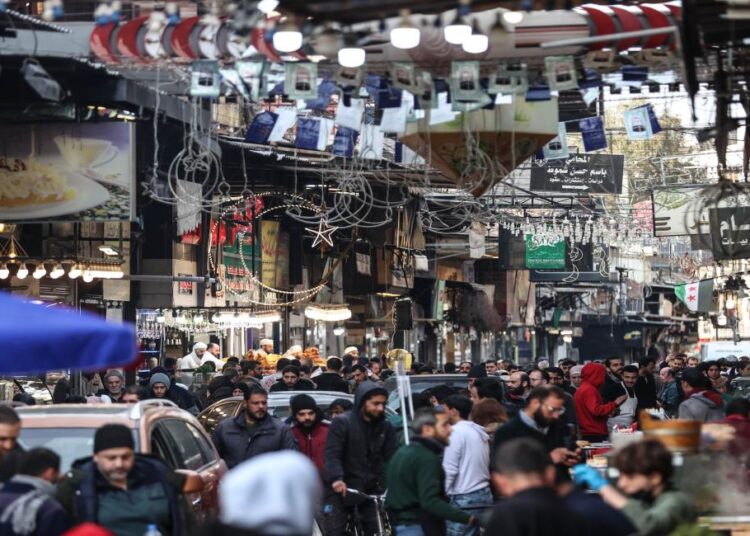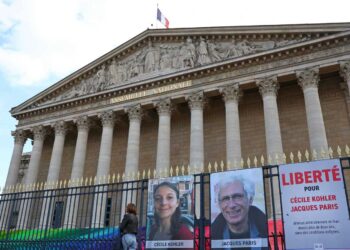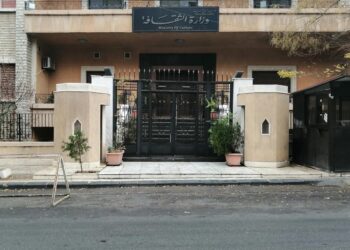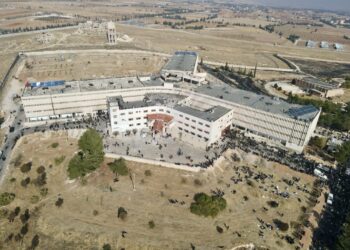Fadel Abdulghany
The concept of political citizenship represents a foundational theoretical framework that goes beyond the legal boundaries of citizenship to encompass the essential dimensions of civic and democratic participation. Unlike legal citizenship, which refers to formal membership in a political group and the associated rights and duties, political citizenship embodies what Hannah Arendt calls “active life (vita activa),” that is, effective engagement in the public sphere. This conceptual distinction gains importance during periods of political transition, as the transition from authoritarian rule to democratic systems is not limited to institutional reform but also requires the development of active political citizens capable of sustaining democratic practices. In the Syrian context following the fall of the Assad regime, developing political citizenship has become essential for achieving effective political participation, establishing the separation of powers, and consolidating democratic governance and the rule of law.
The intellectual foundations of political citizenship go back to Aristotle’s concept of the ‘city/state’, where citizenship was by nature political, not merely legal. Aristotle’s concept of man as a “political animal” established the premise that true human flourishing is achieved through active participation in the political community. This classical understanding posited the political citizen as a person who alternately rules and is ruled, participating in the collective determination of justice and the common good. This framework differs from modern liberal concepts that emphasize individual rights and private autonomy, as it places political participation at the heart of human identity and social flourishing.
The republican tradition developed this conception through its emphasis on civic virtue and the common good. Theorists in this tradition argued that maintaining free political institutions required citizens who possessed and practiced civic virtue, that is, the tendency to prioritize the common good over private interests when conflicted. The republican conception asserts that active participation is not merely a right to be exercised, but rather a fundamental duty to preserve the principle of non-domination that characterizes free societies. Thus, the republican citizen appears as a politically active and morally committed person, aware that freedom depends on collective action to prevent the concentration of arbitrary power.
Maintaining free political institutions requires citizens who possess and practice civic virtue.
Modern democratic theory has brought about significant transformations in the concept of political citizenship. Thomas Humphrey Marshall’s influential tripartite analysis of citizenship—civil, political, and social—provides a framework for understanding the historical development of political citizenship through its gradual expansion from basic civil protections to rights of political participation, leading to social citizenship that guarantees the conditions for effective participation. However, contemporary studies indicate that Marshall’s framework needs updating to address present-day challenges, including globalization, migration, and changing patterns of political participation. The relationship between the civil, political, and social dimensions of citizenship is more complex and interconnected than understood from Marshall’s evolutionary model.
The deliberative democratic tradition, influenced by Jürgen Habermas’s theory of communicative action, presents a conception of political citizenship based on participation in a rational public discourse aimed at reaching justified agreement on a common issue. Deliberative action is not limited to voting or other forms of procedural participation, but is characterized by the ability and willingness to engage in open, rational discussion on public issues. This model emphasizes the possibility of “transforming preferences” through public deliberation, meaning that political citizenship is not limited to the accumulation of previous preferences, but rather includes refining and developing them through collective reasoning processes.
Contemporary theoretical approaches reveal a tension between liberal and republican conceptions of political citizenship. While liberal citizenship focuses on individual rights, autonomy, and protection from state interference, republican citizenship prioritizes active participation, civic duty, and collective self-governance. This tension is evident in the debate over whether political citizenship should primarily protect individual freedom or promote collective democratic participation to ensure non-domination and the sustainability of the constitutional order.
Active participation enhances legitimacy and policy effectiveness during transitions, while also revealing ongoing challenges related to inclusion, representation, and institutional design.
The importance of political citizenship is particularly evident during periods of political transition, as the transition from authoritarian to democratic rule requires radical changes in both institutional structures and civic culture. Political transformations, such as the Syrian case following the fall of the Assad regime, demonstrate that strengthening democracy depends not only on establishing formal institutions, but also on nurturing citizens capable of effective political participation and exercising democratic self-governance.
During transitional periods, the distinction between formal legal citizenship and political citizenship becomes clear. While formal citizenship status may remain relatively stable as regimes change, developing political citizenship requires transformations in civic capacities, democratic behaviors, and participatory orientations. Numerous transition experiences confirm that institutions alone are not sufficient to ensure democratic governance; they must be enabled by citizens who possess the knowledge, skills, and motivation for effective political participation. This indicates that successful democratic transformations require, in addition to institutional reform, the development of citizen behavior, including democratic commitments, political capabilities, and participatory orientations, which are essential components of the functioning of democratic institutions.
The concept of political agency becomes central in transitional phases, as citizens must develop their capacity for effective action within emerging political contexts. Political citizenship, in essence, involves exercising this agency through formal participation (voting and representation) and broader forms of civic engagement, deliberation, and political mobilization. In transitional contexts, this requires developing the capacity to engage effectively in shaping new political institutions, parties, and practices.
The principle of separation of powers is a cornerstone of democratic governance, and its strengthening depends largely on the development of political citizenship. Citizens must understand and actively support the distribution of power among the branches of government, recognizing the threat that concentration of power poses to democratic governance. Contemporary studies in the field of democracy indicate that active participation enhances the legitimacy and effectiveness of policies during transitional phases, while at the same time revealing ongoing challenges related to inclusion, representation, and institutional design. The participatory democracy model depicts the political citizen as an active participant in deliberative processes that contribute to shaping public policy, drawing inspiration from classical democratic ideals and emphasizing the educational function of political participation; that is, engagement in democratic processes develops citizens’ capacities for self-governance and enhances individual and collective prosperity.
The transition from authoritarian regimes to democracy requires the development of citizens capable of exercising their political roles.
In periods of transition, the normative theory of political citizenship raises complex questions about the relationship between rights and responsibilities within emerging democratic societies. While liberal theory focuses on individual rights and freedoms, strengthening democracy in these stages requires citizens who recognize that their political participation is both a right and a responsibility. It is necessary to warn against employing concepts of political citizenship as mechanisms for exclusion and marginalization, especially during transitional periods in which the boundaries of political membership are being redefined. The distinction between legal and political citizenship demonstrates that formal legal status may not translate into real political effectiveness, particularly in marginalized societies or those linked to previous regimes. Many may have legal citizenship while remaining effectively excluded from political life due to structural inequalities or discriminatory practices that persist or emerge during transitional periods, potentially leading to renewed armed conflict.
During political transitions, such as the one witnessed in Syria following the fall of the Assad regime, strengthening political citizenship becomes a prerequisite for achieving effective political participation, strengthening the separation of powers, and establishing democratic governance. The transition from authoritarian regimes to democracy requires the development of citizens capable of exercising their political roles and participating in the deliberative processes necessary to prevent the reconcentration of arbitrary power.
The success of the political transition process depends on bridging the gap between formal citizenship and actual political participation, and on establishing comprehensive frameworks that enable meaningful political participation for various segments of the population. The quality of political citizenship affects the legitimacy and effectiveness of emerging governance institutions, as these institutions require citizens who possess the knowledge, skills, and motivation to participate effectively in order to perform their functions sustainably.






